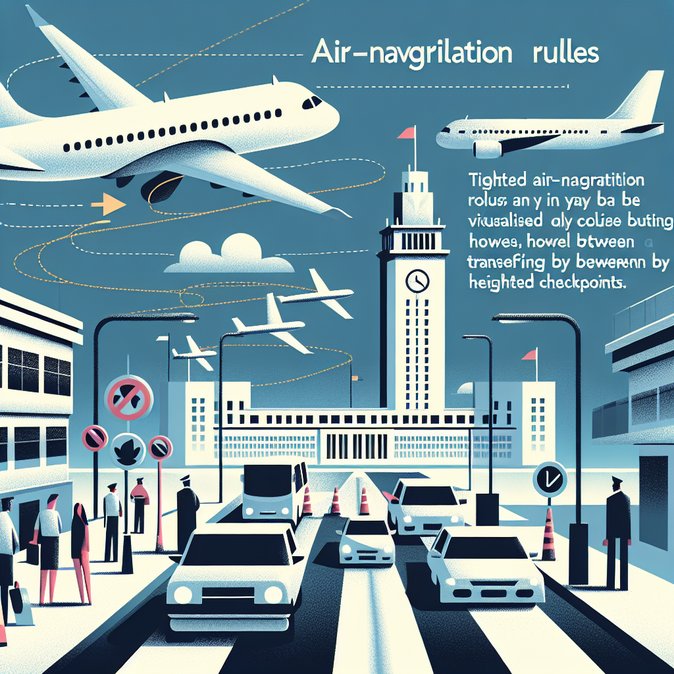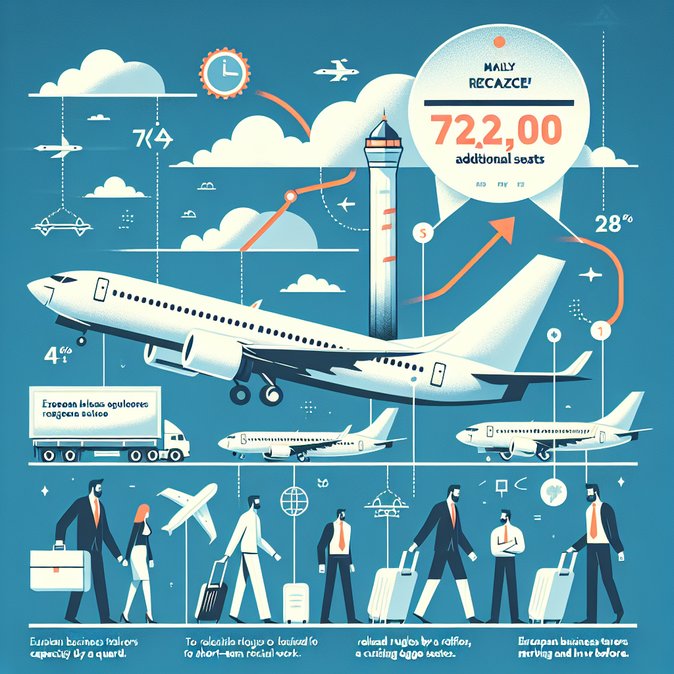
Brazilian authorities intensified the mobility bubble around Belém on 14 November after security advisers to the UN Climate Secretariat warned that protest activity could spike during the high-level phase of COP30 (15-21 November).
A new NOTAM issued by the Air Navigation Management Centre (CGNA) designates Val-de-Cans Airport (SBBE) a fully coordinated aerodrome. All non-scheduled operators—including corporate jets, cargo charters and aerial TV crews—must now obtain prior-permission-required (PPR) slots, with ground-time capped at four hours unless an overnight parking stand has been pre-cleared. Layered no-fly zones with a 5-, 12- and 25-nautical-mile radius have been activated around the Parque da Cidade negotiation zone; the Airspace Operations Command (COMAE) retains discretionary authority to suspend flights at short notice during VIP movements or security incidents. Airlines have padded block times by 10-15 minutes and warned that missed slot tolerances will trigger operational fines.
![Belém locks down skies and streets as COP30 reaches crunch week]()
On the ground, municipal decrees are enforcing rolling traffic cordons that funnel all vehicles through police and army checkpoints on Nazaré, José Malcher and Almirante Barroso avenues. Only accredited shuttles, taxis with QR-coded permits and vehicles displaying an official blue COP30 vignette may enter the inner ring. Travel-risk firm Adept Traveler reports average transfer times from the main hotel corridor to the venue have doubled to 60-90 minutes; mobility planners are urging delegates to leave at least three hours before speaking slots.
While business visitors lament the inconvenience, the Lula administration argues the measures are essential after protesters briefly breached the “Blue Zone” on 11 November. Since then, immigration queues have held steady—about 35 minutes on average—partly because the Ministry of Tourism has processed more than 32 000 free e-Visas for registered delegates, speeding document checks.
Practical tips for companies: reconfirm PPR slots 48 hours in advance; carry printed diversion maps for drivers (ride-hail platforms are geo-blocked inside the perimeter); warn travellers that standard Brazilian ID or passport must be shown at each checkpoint; and budget overtime for local staff whose commutes now run past midnight due to one-way schemes. The airspace and traffic restrictions will taper after dignitaries depart on 21 November, but some lane closures may persist until temporary structures are dismantled—potentially into early December.
A new NOTAM issued by the Air Navigation Management Centre (CGNA) designates Val-de-Cans Airport (SBBE) a fully coordinated aerodrome. All non-scheduled operators—including corporate jets, cargo charters and aerial TV crews—must now obtain prior-permission-required (PPR) slots, with ground-time capped at four hours unless an overnight parking stand has been pre-cleared. Layered no-fly zones with a 5-, 12- and 25-nautical-mile radius have been activated around the Parque da Cidade negotiation zone; the Airspace Operations Command (COMAE) retains discretionary authority to suspend flights at short notice during VIP movements or security incidents. Airlines have padded block times by 10-15 minutes and warned that missed slot tolerances will trigger operational fines.

On the ground, municipal decrees are enforcing rolling traffic cordons that funnel all vehicles through police and army checkpoints on Nazaré, José Malcher and Almirante Barroso avenues. Only accredited shuttles, taxis with QR-coded permits and vehicles displaying an official blue COP30 vignette may enter the inner ring. Travel-risk firm Adept Traveler reports average transfer times from the main hotel corridor to the venue have doubled to 60-90 minutes; mobility planners are urging delegates to leave at least three hours before speaking slots.
While business visitors lament the inconvenience, the Lula administration argues the measures are essential after protesters briefly breached the “Blue Zone” on 11 November. Since then, immigration queues have held steady—about 35 minutes on average—partly because the Ministry of Tourism has processed more than 32 000 free e-Visas for registered delegates, speeding document checks.
Practical tips for companies: reconfirm PPR slots 48 hours in advance; carry printed diversion maps for drivers (ride-hail platforms are geo-blocked inside the perimeter); warn travellers that standard Brazilian ID or passport must be shown at each checkpoint; and budget overtime for local staff whose commutes now run past midnight due to one-way schemes. The airspace and traffic restrictions will taper after dignitaries depart on 21 November, but some lane closures may persist until temporary structures are dismantled—potentially into early December.


